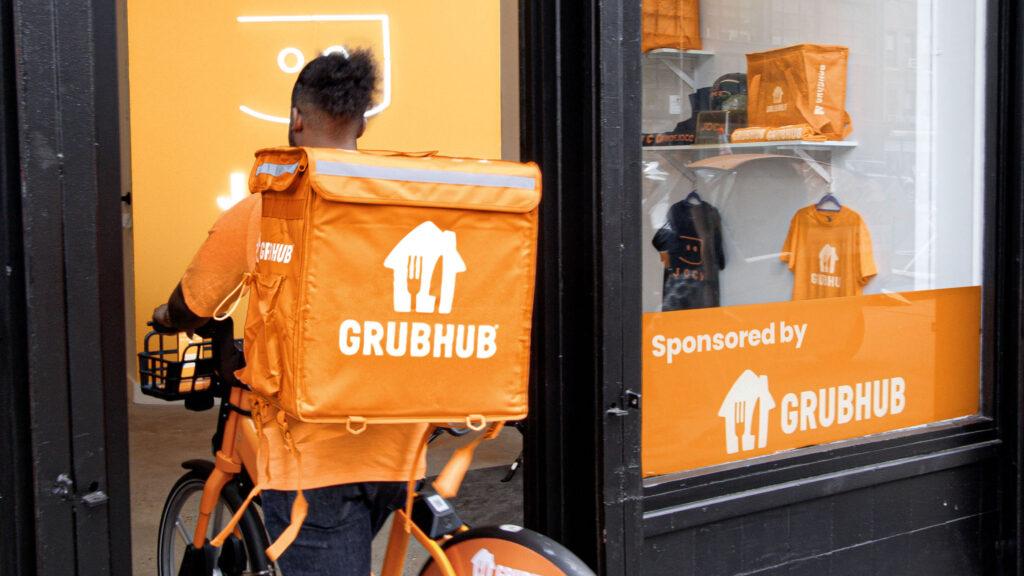Grubhub’s Sudden Dismissal of Delivery Drivers Sparks Gig Economy Job Security Debate
In a surprising development that has sent ripples through the gig economy, Grubhub abruptly ended contracts with 50 delivery drivers in Lower Manhattan last week. This move has triggered widespread protests and intensified scrutiny over labor conditions in app-based work. Drivers and labor rights advocates argue that the company’s decision underscores the fragile nature of gig employment, where workers often lack fundamental protections such as health benefits, paid time off, and stable income.
Critics emphasize several core challenges fueling the unrest:
- Income volatility: The unpredictability of earnings is worsened by sudden job terminations.
- Absence of benefits: Gig workers typically do not receive employer-sponsored healthcare or retirement plans.
- Limited legal safeguards: Classification as independent contractors restricts access to many labor rights.
Below is a comparison highlighting key differences between gig workers and traditional employees regarding job security and benefits:
| Category | Gig Workers | Traditional Employees |
|---|---|---|
| Employment Classification | Independent Contractor | Full-Time Staff |
| Job Stability | Highly Variable | Generally Stable |
| Benefits Provided | Minimal or None | Health Insurance, Retirement, Paid Leave |
| Legal Protections | Restricted | Comprehensive |
| Income Consistency | Fluctuating | Fixed Salary or Hourly Wage |
Lower Manhattan Protests Demand Greater Transparency and Worker Rights
On Tuesday, hundreds gathered outside Grubhub’s headquarters in Lower Manhattan, voicing their frustration over the abrupt dismissal of 50 delivery drivers. Many wore company-branded gear and held placards calling for equitable treatment and an end to sudden, unexplained terminations. Protesters criticized the company’s lack of clear communication, noting that many affected workers were given little to no advance notice or justification for their dismissal.
Organizers have put forward specific demands aimed at improving labor relations and ensuring fair treatment:
- Clear and timely termination notices to prevent unexpected job loss.
- Establishment of fair appeal mechanisms allowing workers to contest dismissals.
- Improved communication channels to enable workers to raise concerns without fear of retaliation.
| Demand | Purpose | Current Status |
|---|---|---|
| Advance Termination Notice | Reduce sudden unemployment shocks | Awaiting Company Response |
| Fair Appeal Process | Safeguard worker rights | Under Negotiation |
| Open Worker-Management Dialogue | Enhance transparency and trust | Requested |
Consequences of Workforce Reductions on Urban Food Delivery Operations
Grubhub’s unexpected layoffs have not only unsettled the affected drivers but also disrupted the broader urban food delivery network. The reduction in available couriers has led to longer delivery times and increased order cancellations, particularly during peak dining hours, negatively impacting customer experience. The protests have drawn attention to systemic issues in gig labor practices, pressing companies to adopt more responsible workforce management.
- Operational delays: Customers report slower deliveries and occasional order cancellations.
- Employee dissatisfaction: Workers demand fair severance packages and improved working conditions.
- Community involvement: Local advocacy groups and supporters have rallied behind the drivers.
| Area Affected | Current Situation | Potential Consequences |
|---|---|---|
| Delivery Performance | Declined since layoffs | Customer dissatisfaction, revenue loss |
| Worker Morale | Low, with active protests | Increased turnover, negative publicity |
| Local Economy | Minor disruption | Reduced earnings for gig workers |
Industry experts caution that without thoughtful workforce strategies, such abrupt cuts could jeopardize the long-term viability of urban delivery services. Since gig workers are essential to these platforms, companies must balance cost-cutting with maintaining customer trust and employee loyalty.
Empowering Gig Workers: Tactics to Strengthen Rights Amid Industry Volatility
In the face of growing instability within the gig economy, delivery drivers must adopt proactive measures to protect their livelihoods. Collective organization, such as forming or joining unions, can enhance bargaining power and provide a united front. Digital activism, including coordinated social media campaigns and public demonstrations like those in Lower Manhattan, plays a crucial role in raising awareness and pressuring companies to adopt fairer labor policies.
Equipping workers with knowledge about their legal rights is equally vital. Many gig workers remain unaware of protections related to minimum wage laws and wrongful termination. Establishing community resource centers or online platforms can facilitate access to this information, empowering workers to advocate effectively.
| Approach | Description | Anticipated Benefit |
|---|---|---|
| Union Formation | Creating or joining delivery worker unions | Enhanced collective negotiation strength |
| Legal Rights Education | Workshops on labor laws and contract understanding | Greater awareness, reduced unfair dismissals |
| Social Media Campaigns | Organized online advocacy efforts | Increased public support and pressure on companies |
| Peer Support Networks | Groups offering emotional and financial aid | Improved resilience during layoffs or disputes |
Final Thoughts
The recent termination of 50 Grubhub delivery drivers in Lower Manhattan has reignited debates about labor rights and job security within the gig economy. The ongoing protests underscore the urgent need for transparent communication and fair treatment in an industry that continues to grow in economic importance yet remains fraught with worker precarity. As both Grubhub and labor advocates navigate this conflict, the coming weeks will be critical in shaping the future dynamics between gig workers and the platforms they depend on for income.













